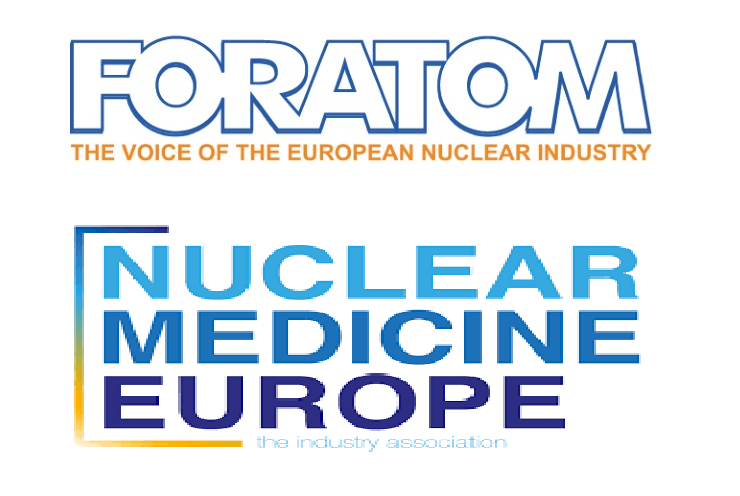Foratom, the European nuclear trade body, and Nuclear Medicine Europe, which represents the pharmaceutical and imaging equipment companies in the field of nuclear medicine, have just issued a joint position paper which states that Europe must take action to sustain the current level of the medical radioisotope supply. They say that the European Union should promote new research reactor capacity. There should be innovation in the sector and design modifications of the current fleet.
The title of the joint position paper is Medical Uses of Nuclear Technology: Role, Challenges and Perspectives. It explains the technicalities of nuclear medicine, presents the scope of the current muclear medicine sector in the E.U. It also highlights the challenges that must be overcome both at the regulatory and supply chain levels.
The paper points out that nuclear technology plays a significant role in the medical sector. Medical applications include the production of radioisotopes and the development of diagnostic and therapeutic procedures. These technologies save thousands of live each day. Every year, over nine million patients in Europe benefit from nuclear medicine in the diagnosis and treatment of illnesses such as cancer, cardiovascular or neurological disorders.
The paper says, “The European nuclear medicine sector, while doing its best to provide Europeans with the required medical services, is currently facing a number of challenges. These may have a significant impact on its future role in the EU if no changes are implemented.”
The paper mentions a number of key issues related to supply chain investment needs and the regulatory framework which must be addressed in order to maintain the edge that the E.U. enjoys today in the field globally. The current level of medical radioisotopes supply must be increased in order to address the increase in demand that has been forecast.
Foratom and Nuclear Medicine Europe say that the E.U. should:
• promote new research reactor capacity along with innovation
• reconsider reimbursement systems and levels for radiopharmaceutical products
• develop a robust supply chain which goes beyond irradiation
• reconsider and adapt clinical research and development of new radiopharmaceutical compounds.
They also recommend that the E.U.:
• take steps to better recognize and support the role of nuclear technology and it non-power applications
• quickly take actions identified in the European Commission’s Strategic Agenda for Medical Ionizing Radiation Applications (SAMIRA) Action Plan which was adopted in February of 2021
• support the implementation and use of low-enriched uranium
• homogenize markets across the Member State level
• support regulatory frameworks for the development of new medicines and reimbursement models for nuclear medicine application
• renovate nuclear medicine equipment, especially in the E.U. periphery countries
• secure a level playing field for the development of low-carbon technologies
General Yves Desbazeille is the Director of Foratom. He said, “Nuclear technology offers many different important applications apart from providing low-carbon electricity at an affordable cost. Nuclear medicine is one of them as it enables access to diagnostic and lifesaving treatments technologies. Although the EU is involved in the nuclear medicine sector and its developments, more has to be done to address the current challenges in order to maintain the edge that the EU enjoys today in this field globally.”
Antonis Kalemis, is the president of Nuclear Medicine Europe. He added that “The European nuclear medicine sector - like the wider nuclear industry - faces several challenges, from negative attitudes towards nuclear energy/radiation, uncertainty over funding in new nuclear energy capacity and the management of nuclear waste. We recommend that nuclear technology and its non-power applications should be better recognized and supported at the EU level. We also call for an EU roadmap dedicated to nuclear medicine research and development.”
